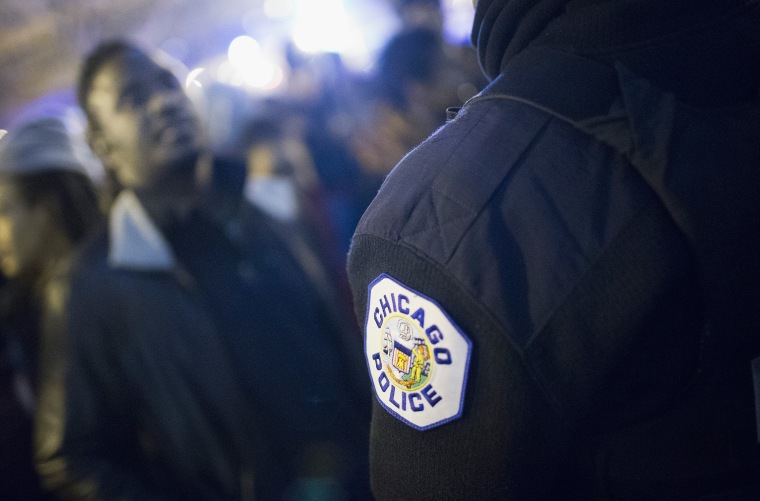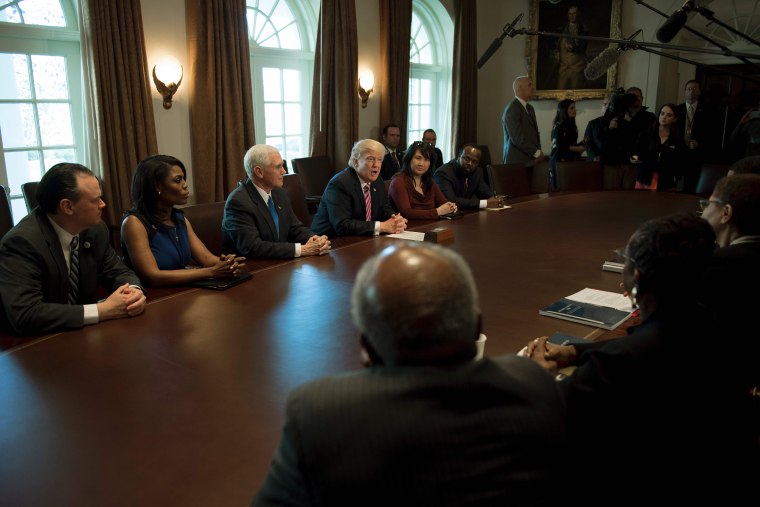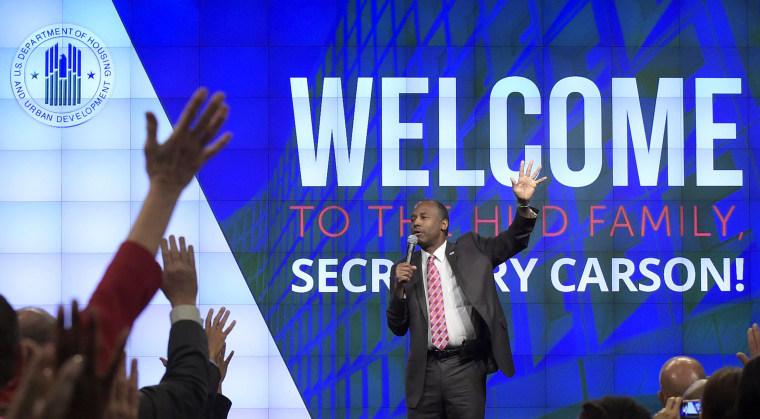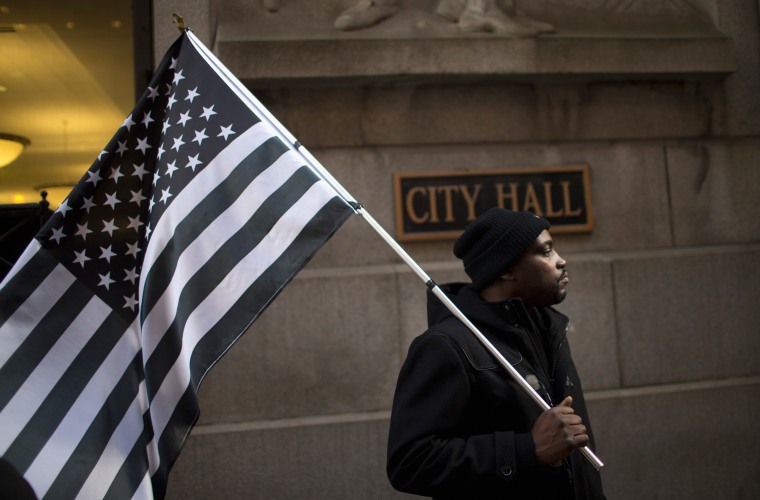In early April, residents and officials alike in Baltimore were waiting anxiously. At issue: whether a federal judge would approve a consent decree between the Department of Justice and the city, designed to reform its police department two years after Freddie Gray’s custody death.
The DOJ’s 11th hour request to delay a decision, a move sought by new Attorney General Jeff Sessions, rankled some and worried others. Indeed, the country’s top attorney signaled he would review similar agreements nationwide after terming certain police department findings “anecdotal.”
Yet U.S. District Judge James Bredar signed the agreement on April 7, noting that “the time for negotiating has long since passed.”
Related: This County Flipped From Obama to Trump. How Do Voters Feel Now?
For reform advocates, it was vindication, the first step perhaps towards more constitutional policing.
“Both the police and community are victimized when there’s a poor system in place,” said Ron Davis, a law enforcement veteran who formerly headed the DOJ’s Office of Community Oriented Policing Services under the Obama administration.
Asked if Donald Trump’s presidency will provide the necessary framework to support the U.S. Constitution, particularly the 14th Amendment that ensures equal protection for all citizens under the law, he commented: “It’s caused me great concern.”

Policing is among the Civil Rights issues under the Trump administration that has roiled some Americans and stirred protests, or a sense of optimism for supporters in these first 100 days. While recent polls suggest Republican stalwarts and Trump voters have favorable views of his tenure to date, critics abound.
“We have seen a series of unlawful and misguided executive orders, imposition of a discriminatory Muslim Ban, a massive rollback on federal civil rights enforcement and a resulting wave of litigation across the country challenging this administration’s actions,” said Kristen Clarke, President and Executive Director, Lawyers’ Committee for Civil Rights Under Law. “This administration must reverse course before causing further damage to American democracy.”
Rep. John Conyers (D-MI) indicated he sees little room for sunniness on the horizon.
During a recent forum on Capitol Hill held to examine Civil Rights under Trump, the veteran Congressman noted that while the Obama administration made “notable legislative and enforcement gains in civil rights,” the climate of equality shifted.
“Though the Trump presidential campaign promised meaningful changes that would benefit minorities in the area of crime, equal justice and economic equality, his political allies and surrogates sent a different message that served to heighten national divisions and anxiety,” said Conyers.
He cited rollbacks in voting rights litigation enforcement; proposed cuts to the EPA’s Office on Environmental Justice; and Trump quietly revoking the Fair Pay and Safe Workplaces Order designed to protect women against employment discrimination.
“With the rise in hate violence, police shootings and legislative backlash at the state and local level, minority communities have been justifiably concerned about the continuing role of the federal government in protecting their civil rights,” he said.
Roy Austin, a Washington, D.C. attorney and former director of the White House Office of Urban Affairs, Justice, and Opportunity, didn’t mince words when asked how Civil Rights are faring under Trump so far.
“I’d have to give them an F minus. They aren’t doing a single thing to protect Civil Rights,” he said. Ticking off immigration roundups, a proposed Mexican border wall, transgender protections and voting rights, Austin added, “As an Administration they appear to be doing a number of things to go backwards."
Cedric Richmond (D-LA), chairman of the Congressional Black Caucus, agreed.
“For the African American community, for the civil rights community, for any community committed to equality and justice for all human beings, we all have a lot to lose under this Administration.”

He lamented that in regards to voting rights the DOJ has “already reversed” its longstanding claim that Texas enacted its 2011 voter ID law with discriminatory intent.
Moreover, the Trump Administration “almost immediately” reversed course on the last administration’s decision to stop contracting with private prisons. “What comes next should not surprise us,” he said.
Human rights attorney Nkechi Taifa is Advocacy Director for Criminal Justice for the Open Society Foundations.She's spent much of her career fighting for criminal justice reform.
“Now, 25 years after the progressive community was finally making strides to successfully move the needle from “tough on crime” to “smarter on crime,” we find ourselves confronted with a myopic president bent on tunneling back in time,” she said.
“And we have an Attorney General hostile to bipartisan legislation that would have addressed archaic and lengthy drug sentences; and an Administration fixated on rolling back key federal protections.”
The White House and GOP are pushing back on critical claims.
“With the rise in hate violence, police shootings and legislative backlash at the state and local level, minority communities have been justifiably concerned about the continuing role of the federal government in protecting their civil rights.” — Rep. John Conyers
Administration officials counter that President Trump has taken action to help marginalized communities which they charge past administrations have neglected.
In its daily press missives, the team has touted a litany of accomplishments that range from what was termed expanding “access to care” for America’s veterans, to prioritizing Historically Black Colleges and Universities (HBCUs).
Meanwhile, the Republican National Committee (RNC) announced in a press release that they raised $12 million in March and $41.5 million for the first quarter. Both the March and first quarter totals set new records for fundraising following a presidential election.
"There is a very simple explanation for the record breaking donations to the Party,” said RNC Finance Chairman Steve Wynn. “Americans across the country are expressing their belief that the best chance for a better life in our country is with continued Republican control of the House, Senate, and the White House under President Trump."
News statements from the White House have also praised Dr. Ben Carson, the new Secretary of Housing and Urban Development (HUD) for “promoting accountability at HUD field offices to the citizens they serve.”

Carson, the only African American in Trump’s cabinet, is currently on a multi-city listening tour which a HUD press release said “will allow him to hear directly from the people and organizations who reside in and support public housing.”
The National Fair Housing Alliance, whose mission involves ending housing discrimination and promoting inclusive communities, regularly tackles Civil Rights issues.
“When we think about Civil Rights, people often talk about voting, employment discrimination, health access and criminal justice,” said Lisa Rice, Executive Vice President. “But equitable housing is the lynchpin of it all. In the past, our nation has engineered a system of racial apartheid based on where we lived.”
Because Carson has yet to make any major policy changes as HUD’s Secretary, Rice believes the jury is still out. However, she was heartened that during his confirmation hearing he pledged to aggressively enforce the Fair Housing Act. The physician turned politician referred to the law as, “one of the best pieces of legislation which we’ve had.”
Related: Here’s the Full List of Donald Trump’s Executive Orders
Her team hopes to sit down with the federal agency’s newest leader soon. “We have always met with HUD officials. We have requested to do that with Dr. Carson and it’s been acknowledged.”
There’s no shortage of groups examining the Administration and Civil Rights. The Rev. Al Sharpton and his National Action Network are holding its annual convention from April 26-29 in New York City.
EMILY’s List, which supports progressive women candidates, has criticized the Trump Administration over its stance on Planned Parenthood and other matters impacting women and their families.
“If Republicans think this wave of opposition is going to go away – that Trump’s destructive agenda against women will kill their fight – they should think again,” said president Stephanie Schriock. “Women are the resistance – and we’re not going anywhere.”
Taifa, who was part of a roundtable discussion on activism hosted recently in D.C. by the National Conference of Black Lawyers, echoed a similar sentiment.
“If we are to survive this era, it is incumbent that we not only boldly confront repressive and regressive anti-civil rights policies, but also have the audacity to shape a Justice Movement that elevates and transforms accountability for civil rights protections to the realm of human rights.”
